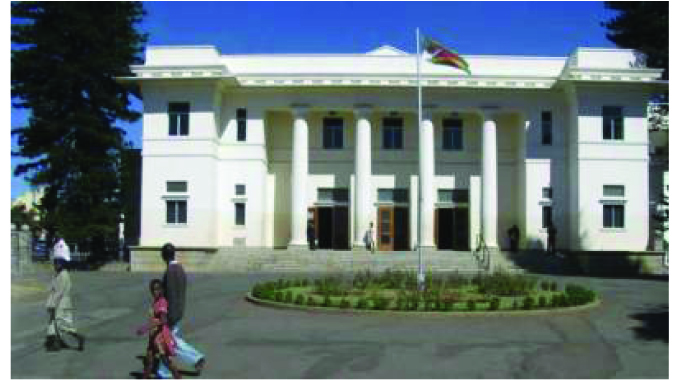BCC owed US$45 million…takes steps to address rising debt, billing issues

Michelle Moyo, [email protected]`
BULAWAYO City Council service debt ballooned to US$45 million in February as residents, industries, and Government departments owed the local authority various amounts with councillors saying some consumers were reluctant to pay their bills because they had been discouraged by the high bills they received.
The local authority says the number of people failing to pay their bills increased by 25 percent in February.
According to the latest council minutes, Finance and Development Committee, domestic debt was at US$28 million, industrial and commercial debt was US$13 million while Government debts stood at US$3 million.
Councillor Mxolisi Mahlangu of Ward 3 raised concern over bills that were escalating amid severe water shedding.
He enquired on the possible legal and financial implications of introducing fixed billing ward by ward.
“Some consumers were reluctant to pay their bills because they had been discouraged by the high bills they received. We urge the Financial Services Department to update the billing system,to ensure that billing abnormalities are identified and properly addressed. “
Finance Manager (Revenue), Mr Tennyson Mpunzi, said that high bills had always been attended to when presented to the department.
“The department had made it a priority to respond to all cases and take appropriate actions to rectify any errors.
“The department had recently resumed regular meter readings, after a prolonged period of relying on estimations. This change was aimed to ensure more correct billing based on actual water usage. However, due to the intensified water shedding, which likely caused fluctuations in water supply and consumption patterns, the billing system was expected to encounter a higher number of inconsistencies,” said Mr Mpunzi.
He further explained that fixed charges were identical for all the residents residing in the same area.
The only difference was water consumption charges and sewer charges based on the water consumed.
“After meter readings, readings were captured into the system and the system indicated if the readings were out of range. Such indications prompted either confirmation or adjustments, these had to be done in accordance with water allocation. Due to the time and manpower constraints they often resorted to adjustments”.
He said residents using septic tanks were exempted from sewer charges.
“It had been recognised that households with more occupants tended to consume more water, leading to higher bills. Escalated bills in low-density areas were often as a result of unnoticed underground pipe leakages. These leaks could go undetected for extended periods, causing water wastage and contributing to higher bills.
“To address this issue, policy makers needed to encourage residents in their respective wards to regularly read their water meters and keep records, especially during water shedding periods and at night. By doing so, residents could help identify abnormal billing and properties affected by leakages.
“The effectiveness of the department was being hindered by a shortage of human capital. The shortage of manpower or resources was likely to impact on the department’s ability to handle billing issues promptly and efficiently. Addressing this shortage would be crucial in improving the department’s overall effectiveness and ensuring smoother operations,” Mr Mpunzi said.
Director of Housing and Community Services, Mr Dictor Khumalo, said council’s capacity to deal with all applications for rebates was inadequate.
“The department had one social office where all interviews were conducted and there was one social worker, who was covering the entire eastern area. The Chamber Secretary advised that there would always be an increase in the debt figures because of the exchange rate movement on the local currency, “ said Mr Khumalo.
He indicated that rebates were not automatic and did not apply to all elderly residents.
“Rebates were granted upon application and after council’s welfare officers had conducted an assessment, to ascertain if the applicant was a deserving beneficiary of the privilege.
“The certificates of life were commissioned by any recognised commissioner of oath and would be ideal if council’s housing offices had the application forms, so that the elderly would be assisted within their jurisdiction,” he said. —@Lo7246Lovelyn












Comments